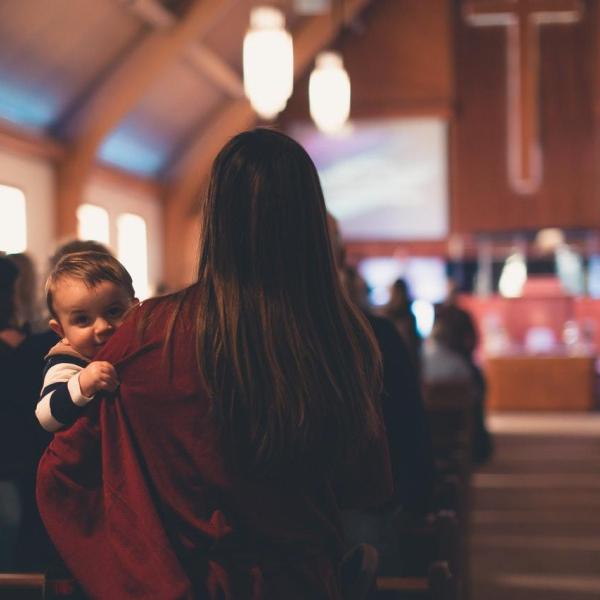Compassion Fatigue: How to help
What to do if you’re alongside someone who might have compassion fatigue, whether they have identified it as this or not.
Previously we’ve looked at what compassion fatigue is and what it feels like, the symptoms to look out for and some practical steps you can take if you find yourself in that place.
As we finish this mini-series, we want to consider what to do if you’re alongside someone who might be feeling this, whether they have identified it as compassion fatigue or not. What can you do to help?
If you’re asking that question, then thank you. It demonstrates your care for others and your willingness to be part of helping them journey through what they’re experiencing. Thank you for caring for the children by caring for the adults, too.
Here are 3 ideas that could help
Listen with empathy
Empathy is powerful, because it helps us to regulate our emotions differently. When we are feeling scared or ashamed then our responses are likely to be defensive, because we’re functioning in the amygdala part of our brain that controls our fight/flight/freeze response. Many foster and adoptive parents will intentionally use empathy with their children as they help them through big feelings, because it helps process feelings differently, in a way that engages our whole brain.
How can we listen with empathy? By hearing the emotions and pain they’re expressing, even if they say things that they don’t fully mean in that moment. They may say things like ‘I wish we’d never done this’. Listening with empathy means not looking shocked or immediately jumping in to correct them or try and fix it. Instead, it means acknowledging how they feel; ‘I can see how hard this is for you/how exhausting it must be/how painful this is’. Remember they will likely be feeling intense shame at even having such a thought in the first place.
Feeling heard and understood can be a huge part in helping people move from that place of feeling overwhelmed, where things are not in perspective, to being able to see more clearly and make a plan to move forward.
Be there
The significance and impact of being a consistent presence in the lives of fostering and adoptive families can not be underestimated, for both the children and the adults. As we truly do life alongside one another, we learn where the points of challenge are and are better placed to consider how we might be able to be part of helping. We also build relationships that are deeper so we are able to ask consistently what we can do to help, or offer specific things from a point of relational connection.
Being there may look like regularly spending time with the family, doing specific things for and/or with the adults or children or offering to take practical weight like doing the washing or walking the dog. It isn’t that the washing or dog walking is the problem, but doing it lightens the mental load a little and gives margin so they can continue to build relationship with their children and have space to journey through to a place of health more easily.
Pray for AND with them
There’s nothing like the power of prayer, for the hope it brings, the breakthrough that comes and the presence of God that it reminds us of. So let’s pray consistently and specifically for friends we know are struggling, and for their children.
And let’s also do this when we’re together, even if it’s in snatched moments in the middle of a busy kitchen. Those moments are no less holy because they’re in the midst of a noisy home. The promise of God is His presence always, anywhere. When we pray with others, we’re physically and spiritually standing with them whatever they’re experiencing, and we get to root ourselves firmly in the truth of God’s word on their behalf and the precious children they’re raising.
It’s a privilege to be part of raising children who have had a difficult start in life and God will use every part of it to help us become more like Him in how we love them and how we learn to handle the challenge and pain that may come. The more real we can be with others – and with God – the better parents and supporters we will be for the children in our care.
Feeling overwhelmed to the point of compassion fatigue is not a failure, and nor does it need to be where the story ends. It does not mean that love or care for your incredible children has run dry or run out. In fact, it’s the opposite – coming from a place of caring so deeply for a long time! If you’re experiencing it now, our prayer for you is that you take a next step to journey through from where you are today. If you’re alongside people who are facing challenge, our prayer is that you would be equipped and able to bring support as they journey. And we’re praying for the children in the centre of it all, that they would continue to know that there are hugely valuable, and that they are deeply loved by God and by those caring for them.
Other articles in this series

Compassion Fatigue: The symptoms and the cause
Compassion fatigue can affect people from all walks of life. But what is it, and why does it happen to us?
Read more
Compassion Fatigue: Five things you can do
It can be so difficult to recognise and acknowledge the signs of compassion fatigue. Here are five things you can do if this is where you find yourself today.
Read moreYou might also be interested in

Articles
Reflecting on Good Friday
Despite the outward appearance of a crushing setback, Good Friday was a day of triumph, unveiling God's divine plan and the true nature of his reign.
Read more
Articles
The Church: a community of shared light
Our Northern Ireland and Nations’ Lead, Roger Cooke shares some reflections on fire, community and the Olympic Games.
Read moreI would like to find out what is
going on in my area
Join our mailing list for the latest Home for Good news and ways to get involved.
Together we can find a home for every child who needs one.
£25 per month could help us create and collate inspiring articles and blogs that encourage and inform the families and communities who care for vulnerable children








 Thank you, you're giving:
Thank you, you're giving: